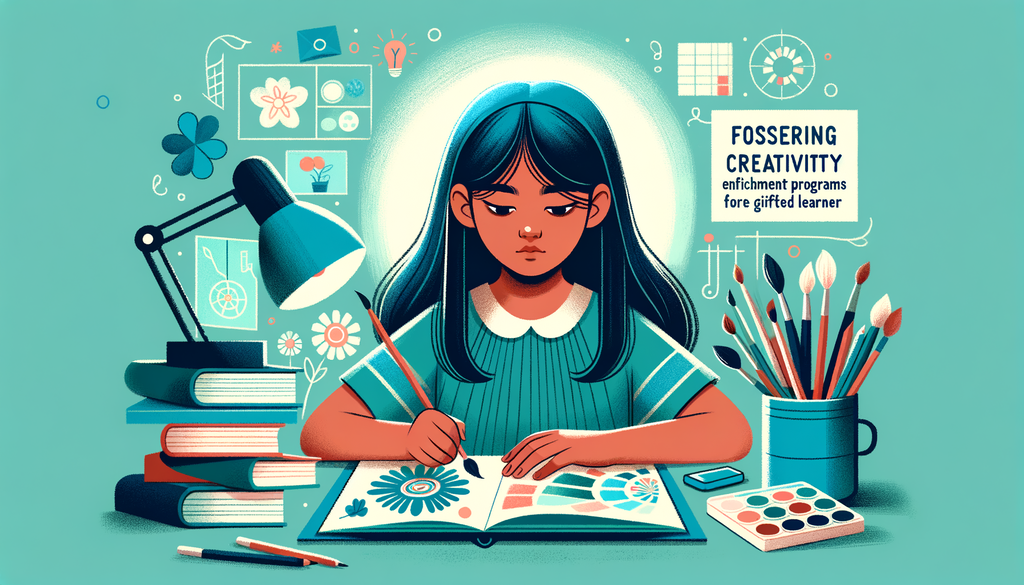Fostering Creativity: Enrichment Programs for the Gifted Learner

Fostering Creativity: Enrichment Programs for the Gifted Learner
Gifted children often exhibit an insatiable curiosity and thirst for knowledge. While this characteristic is undoubtedly an asset, it can present unique challenges for parents and educators alike who strive to meet these learners’ cognitive and creative needs. As explored in our previous post on Recognizing Giftedness in Young Children, identifying giftedness is just the first step. Parents and educators alike must ensure they offer enriching opportunities that suit these children’s advanced development and foster their creative potential.
The Need for Creative Nurturing
Gifted children often have exceptional creative abilities. Whether it’s art, music, drama, or problem-solving, fostering this creativity can be invaluable to the holistic growth and development of gifted children. Regular school curriculums can sometimes restrict a gifted child’s creativity as most activities target the majority of average ability students. Consequently, more comprehensive extracurricular programs become vital in nurturing their unique talents and interests.
Enrichment Programs for Artistic Expression
For gifted students with a flair for the arts, there exist enrichment programs centered around music, drama, and visual arts. These offer sophisticated instruction level beyond the average school art class, letting students explore different art styles and mediums and cultivate their own creative voices.
Support for STEM Interests
Gifted students interested in science and math may demonstrate extensive curiosity about how things work. Enrichment programs such as robotics clubs, coding classes, and Math Olympiads can help satiate this inquisitiveness and challenge their problem-solving skills. These activities also introduce them to real-world applications of their academic interests, which regular school lessons might not necessarily cover.
Emphasizing The Importance of Social Connections
While it’s crucial to address intellectual needs, parents must not overlook their gifted child’s social-emotional development. For instance, participation in team sports and extracurricular groups can help improve their teamwork, leadership, and communication abilities, as covered extensively in our post on Nurturing Leadership in Gifted Children.
Advocating for Your Gifted Child
Parents play a fundamental role in advocating for their gifted children. From Understanding the IEP Process to Advocating for Your Gifted Child, parents can use their understanding of their child’s needs to ensure they receive the appropriate resources and support.
In Conclusion
Fostering the creative potential of gifted learners requires deliberate effort and comprehensive strategies that go beyond academic needs and tap into the artistic, scientific, or leadership talents that gifted children often exhibit. Taking the time to explore various enrichment programs, leaning on community resources, and advocating for your child’s unique needs can set them on a pathway to creative and personal fulfillment.